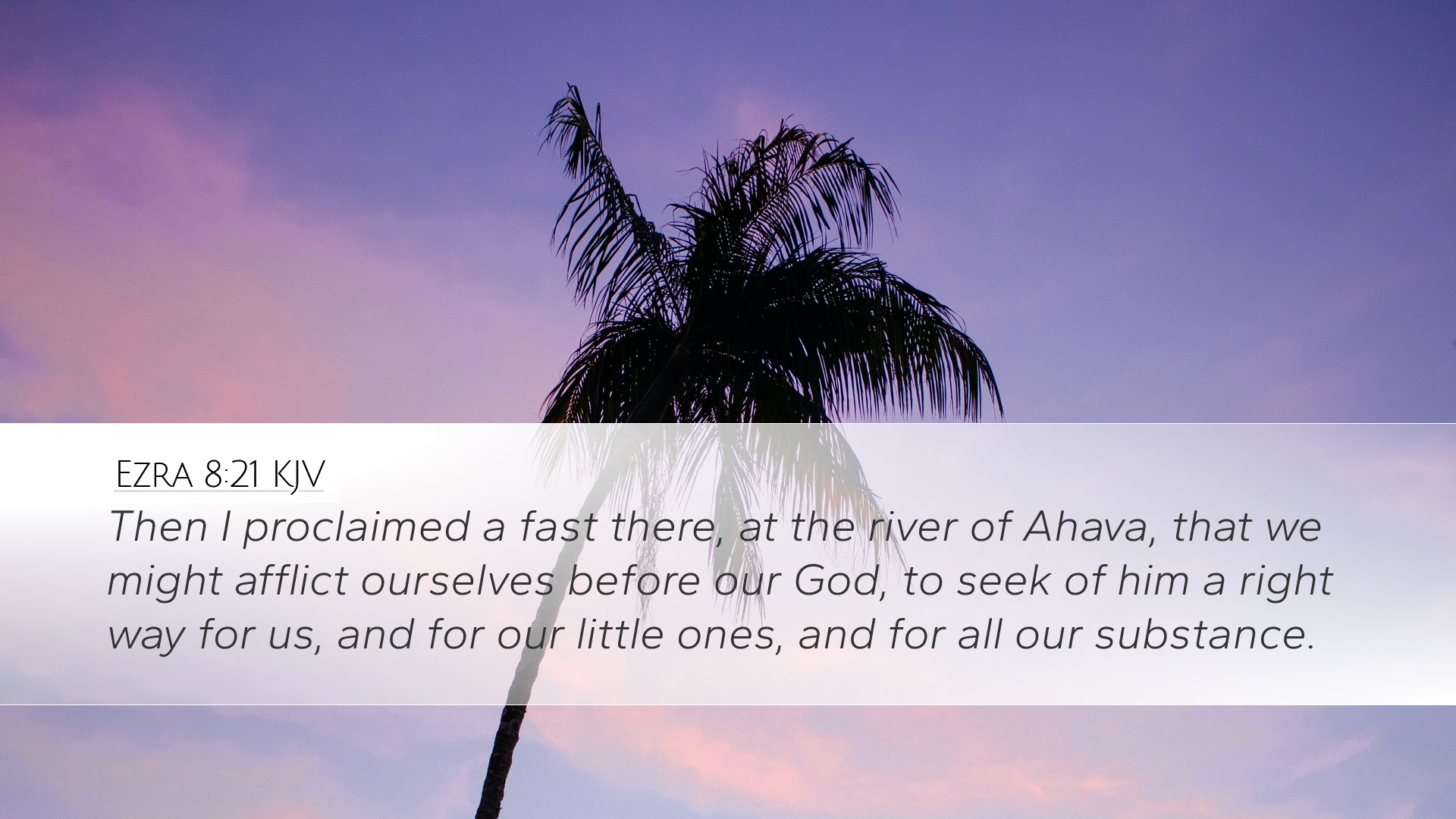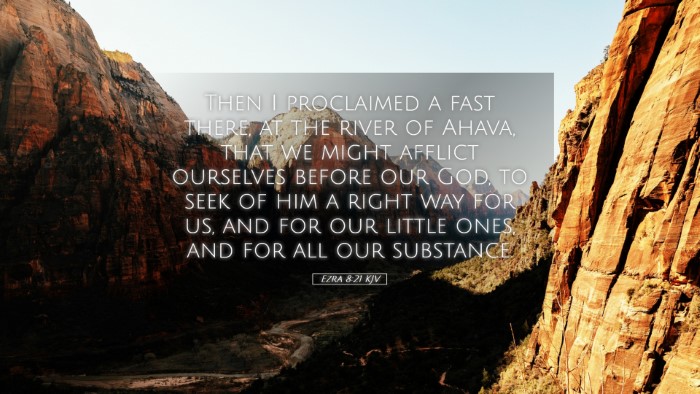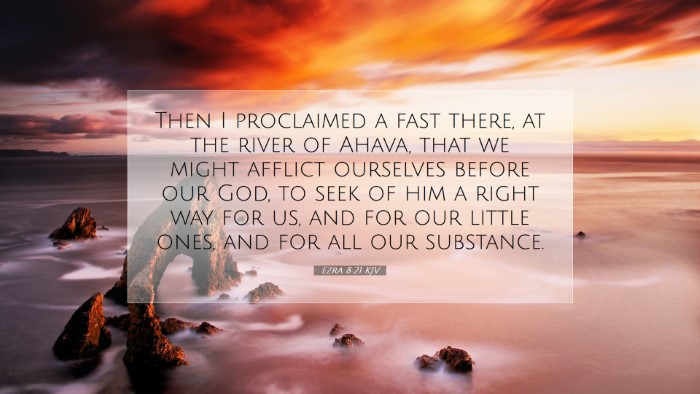Ezra 8:21 Commentary
Verse: "Then I proclaimed a fast there, at the river of Ahava, that we might humble ourselves before our God, to seek of Him a right way for us, and for our little ones, and for all our substance." (Ezra 8:21)
Introduction
The narrative of Ezra 8:21 captures a pivotal moment in the journey of the Israelites returning from Babylonian exile. It reveals the spiritual essence of leadership, dependence on God, and the significance of communal supplication. In this verse, Ezra, a scholarly priest, models reliance on divine guidance as a core principle for the people of God.
General Context
This verse occurs during a period of restoration for the Israelites after their seventy-year captivity. Ezra’s mission was to lead this return and to re-establish the covenant community according to the Law of Moses. The journey from Babylon to Jerusalem was fraught with dangers and uncertainties, making Ezra's call for a fast not just a ritual act, but a profound expression of humility and devotion.
Insights from Commentaries
Matthew Henry
Matthew Henry emphasizes the significance of humbling oneself before God. He notes that Ezra’s proclamation of a fast was not merely an act of religious observance but a sincere attempt to seek divine favor and guidance. Henry points out that in our endeavors, especially those involving our families and possessions, we must first look to God for direction. The fast represents a collective acknowledgment of dependence on God for wisdom and support in their journey.
Albert Barnes
Albert Barnes considers the geographical significance of the river Ahava, which served as a temporary resting place for the returning exiles. Barnes remarks that fasting here signifies a strategic moment for 'self-examination and devotion.' He asserts that Ezra’s fast was relevant to both immediate practical needs and the broader spiritual health of the community. Seeking a "right way" symbolizes a desire not only for safe passage but for a path aligned with God’s will.
Adam Clarke
Adam Clarke delves deeper into the elements of Ezra's fast. He highlights that the purpose of the fast was threefold: to humble themselves, to seek God’s guidance, and to include the welfare of their children and possessions. Clarke posits that the fast indicates a familial aspect of covenant life, as the well-being of ‘little ones’ is brought into focus. His commentary stresses the importance of mutual prayer and fasting as a community act, which underscores the foundational Israelite belief that the faithful thrive together or perish together.
Theological Implications
This verse offers rich theological insights relevant for contemporary believers. The act of fasting as a means of humbling oneself before God reflects the fundamental character of a faithful community. It challenges modern congregations to consider the necessity of seeking divine direction—especially in their leadership and decision-making processes.
- Humility Before God: In a world where self-sufficiency is often celebrated, this verse serves as a reminder of the importance of humility and dependence on God’s power.
- Seeking God's Guidance: The act of fasting in this context represents a proactive measure for seeking clarity in uncertain times.
- Family and Community Welfare: The inclusivity of prayer for “our little ones” indicates a holistic approach to faith, where the well-being of the community's future generations is prioritized.
Practical Applications for Ministry
For pastors and church leaders, Ezra 8:21 provides valuable lessons on how to engage their congregations in spiritual disciplines. Implementing regular times of fasting and prayer, especially when facing significant decisions or transitions, resonates with Ezra's example. Here are some practical applications:
- Encouraging Community Fasting: Create opportunities for the church to engage in fasting as a collective act of faith and dependence on God.
- Teaching on Humility: Incorporate teachings on the importance of humility in personal and corporate contexts.
- Prayer Focus Guides: Develop guides that explicitly include intercessory prayer for children and the community, reinforcing the communal aspect of faith.
Conclusion
Ezra 8:21 is more than a historical account; it is a profound reminder of the spiritual principles that should govern the lives of believers. The themes of humility, prayerful seeking of direction, and the significance of community highlight the foundational aspects of the faith journey. As we reflect on this verse, may we be inspired to follow Ezra's example in our spiritual disciplines and communal life.


